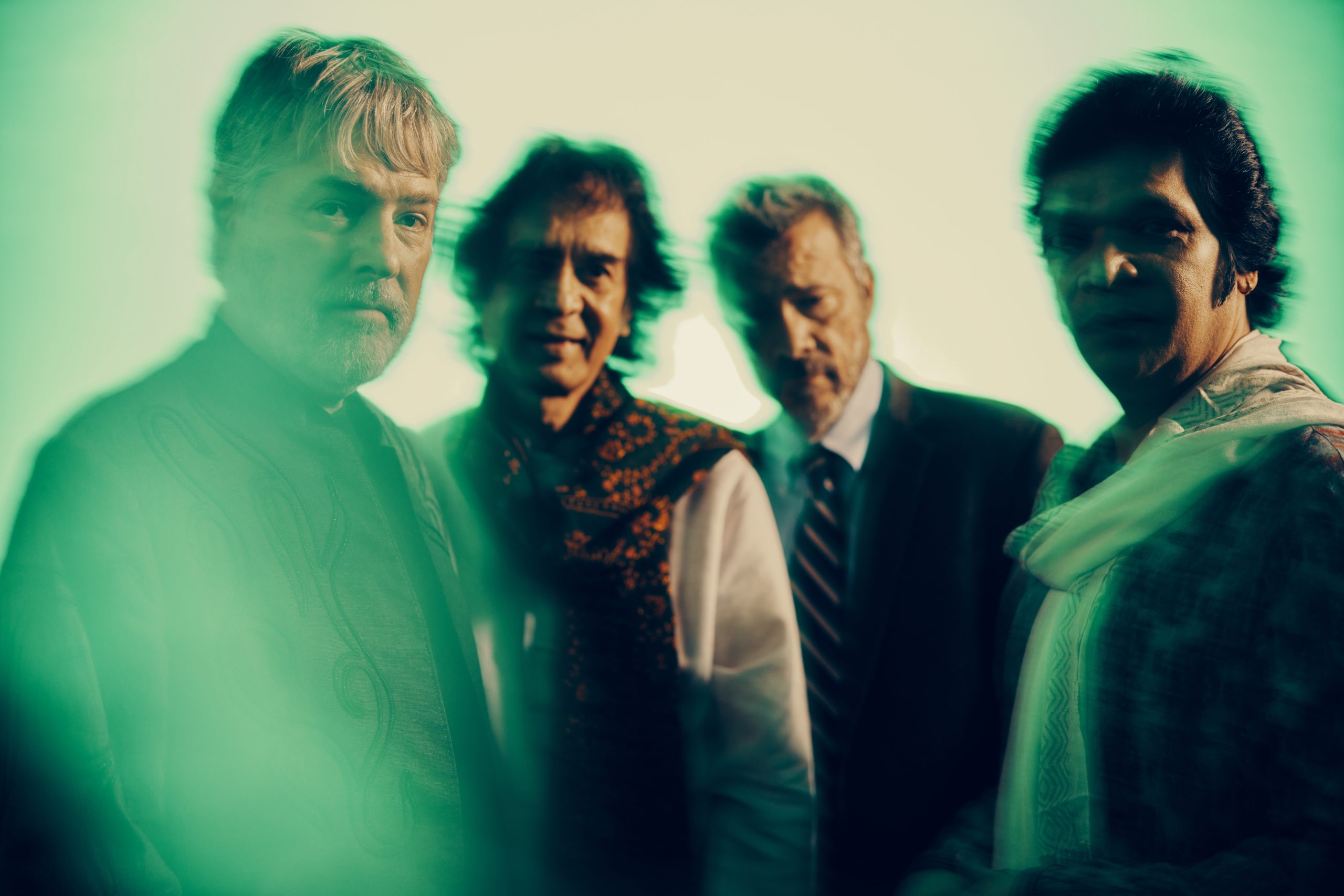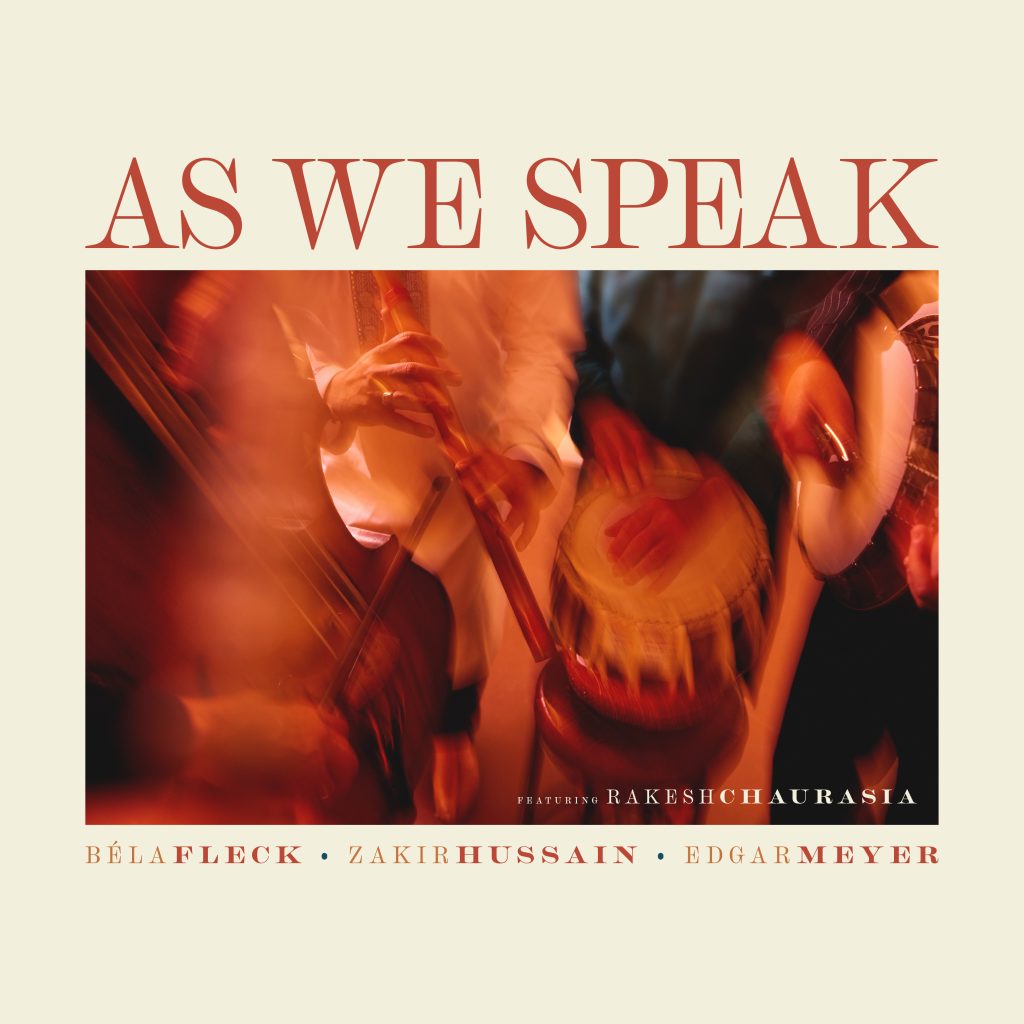
For Béla Fleck, the joy of playing music is the ability to be part of a dialogue. As both a speaker and unbiased ear, the celebrated banjo virtuoso’s approach to music as a conversation holds a fundamental truth: Communicating clearly requires listening closely.
“I really love the traditions of the world, and I love to learn from great musicians,” Fleck says. “But I also think you have to [show up] to the party and find the things you can bring to it.”
Fleck has brought plenty to the party in the more than four decades since his 1979 debut, Crossing the Tracks. From his progressive ’80s bluegrass band New Grass Revival to the frenetic fusion of Béla Fleck and the Flecktones and records with his wife and fellow banjo player Abigail Washburn, Fleck has established himself over the years as a true champion of the instrument.
Now, with an upcoming performance at Chautauqua Auditorium on June 18, Fleck presents As We Speak, a collaborative album featuring three of what he calls “the greatest musicians of all time” — tabla player Zakir Hussain, double bassist Edgar Meyer and bansurist Rakesh Chaurasia.
Each player brings a unique voice to the interchange: Hussain and Chaurasia with backgrounds in traditional Indian music, Meyer’s classical music of the West and Fleck’s underpinning of bluegrass and jazz. The result is an intoxicating sonic cocktail brimming with explosive and tranquil moments alike.
“Every time I collaborate with somebody from a different culture, it makes me better the next time, even if the cultures are wildly different,” he says. “I’m always looking for a way to be myself within their world. Because if I try too hard to be them, it doesn’t work out. It’s just not good. I can’t be an Indian musician, I can only be a banjo player who is inspired by Indian musicians and attempts to find a way in.”

Listening in detail
The dialogue between Fleck, Hussain, Meyer and Chaurasia continues to take new shape, expanding as each musician articulates themselves fluently and without restraint — while still leaving space for one another.
Fleck says every performance with this ensemble feels fresh, especially when it comes to the dynamic between Meyer and Hussain. The pair’s electrifying synergy is apparent across As We Speak, most notably on the track “Beast in the Garden,” where Hussain sings syncopated, staccato rhythms over Meyer’s full-bowed bassline.
“All of a sudden Edgar’s got all these new writing ideas. Completely original to Edgar still, but the light gets turned on,” Fleck says. “You get infected by an idea and then all of a sudden it presents all of these opportunities.”
Love language
As We Speak is not Fleck’s first cross-cultural conversation. In 2005, he began filming Throw Down Your Heart, a documentary following his trip to four African countries to explore the origins of the banjo. Often associated with minstrelry and the intense racism of Appalachia, the film attempts to bridge the instrument’s estrangement from its history as Fleck jams with gifted musicians from Tanzania, Gambia, Uganda and Mali.
Amongthe musicians he worked with was Bassekou Kouyate, who plays a predecessor of the banjo called the djeli n’goni. Kouyate is known as a griot — a community figure who recounts tribal and cultural stories through the oral tradition, often accompanied by music. Historically, griots marry other griots and beget children they raise in the tradition; usually, every family member is also a band member.
Much like the familial musical traditions coursing throughout the As We Speak ensemble, Fleck’s collaboration with these West African artists underscores a lineage of storytelling, music and family. It’s all part of the conversation, and according to Fleck, the best part is not knowing where it will go.
“You know, music is like language: We’re talking and we haven’t pre-planned anything, and we can have this exchange and it can lead this way, can lead that way,” Fleck says. “Music can be that way, too.”
ON THE BILL: Béla Fleck, Zakir Hussain, Edgar Meyer feat. Rakesh Chaurasia: As We Speak. 7:30 pm. Tuesday, June 18, Chautauqua Auditorium, 900 Baseline Road, Boulder. $53
